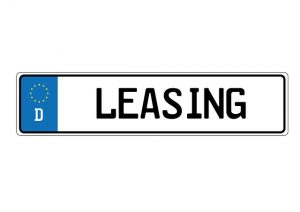 Whether a seasoned veteran or completely inexperienced, almost all rental property owners understand the importance of the lease agreement to ensure a financially safe and legally reliable rental situation. Leases are so important in fact, that many rental property owners choose to use a professional property manager like Martin Feinberg in order to remove all stress and uncertainty regarding leases from their shoulders.
Whether a seasoned veteran or completely inexperienced, almost all rental property owners understand the importance of the lease agreement to ensure a financially safe and legally reliable rental situation. Leases are so important in fact, that many rental property owners choose to use a professional property manager like Martin Feinberg in order to remove all stress and uncertainty regarding leases from their shoulders.
Most experienced property managers understand how important it is to make sure that each lease covers every detail necessary to ensure the care of the property and the protection of the rental property owner. Though the details of individual leases will differ, below are four key points that most property managers will want to include in their rental agreements.
Regular Cleaning:
While most tenants understand the importance of keeping their rental unit clean, having a clause in the lease requiring a clean and maintained property will cover those tenants who are o.k. living in unsanitary conditions. When property managers put a requirement of reasonable cleanliness into their leases it provides legal recourse in the case of a tenant who doesn’t maintain the property correctly.
Tenant Maintenance:
Even when a lease contains a clause requiring the tenant to keep the property well maintained, more specific wording is probably needed to legally protect the rental property owner from negligence. A good lease will specifically outline which tasks the tenant is required to handle. A lease could outline the obligation to regularly change HVAC filters and clean gutters for example. Likewise, a good lease leaves no room for misunderstandings about what has to be done—and whenit has to be done—to keep the property well cared for. Such a detailed list will also help the property manager when it comes time to assess whether any funds need to be kept from the security deposit because of neglect.
Subleasing Requirements and Restrictions:
Property managers need to understand their individual state’s laws and requirements regarding subleasing and roommates, and make sure those are represented in the lease, along with their own policies on the issue. The easiest way to avoid trouble is to state in the lease that all tenants must seek permission in writing before allowing anyone else to rent their unit. It is also smart to include a provision that anyone trying to sublease the property must go through the normal tenant screening process, including credit and background checks.
It should go without saying that all leases need to formally outline the property manager’s pet policy, but that alone often isn’t enough to offer adequate protection. Pet policies should be specific. If, for example, a property manager decides to allow pet(s), the lease should include information on pet fees, breed restrictions, size restrictions, numbers, and all other additional information necessary to make sure the tenant’s expectations and the property manager’s expectations match.
